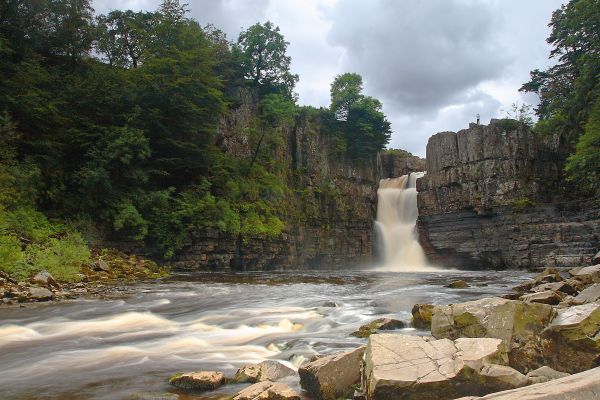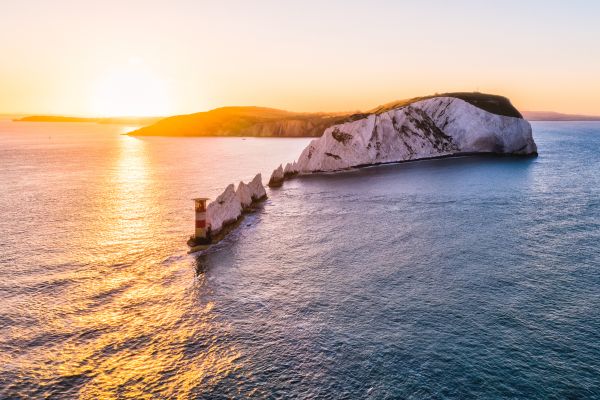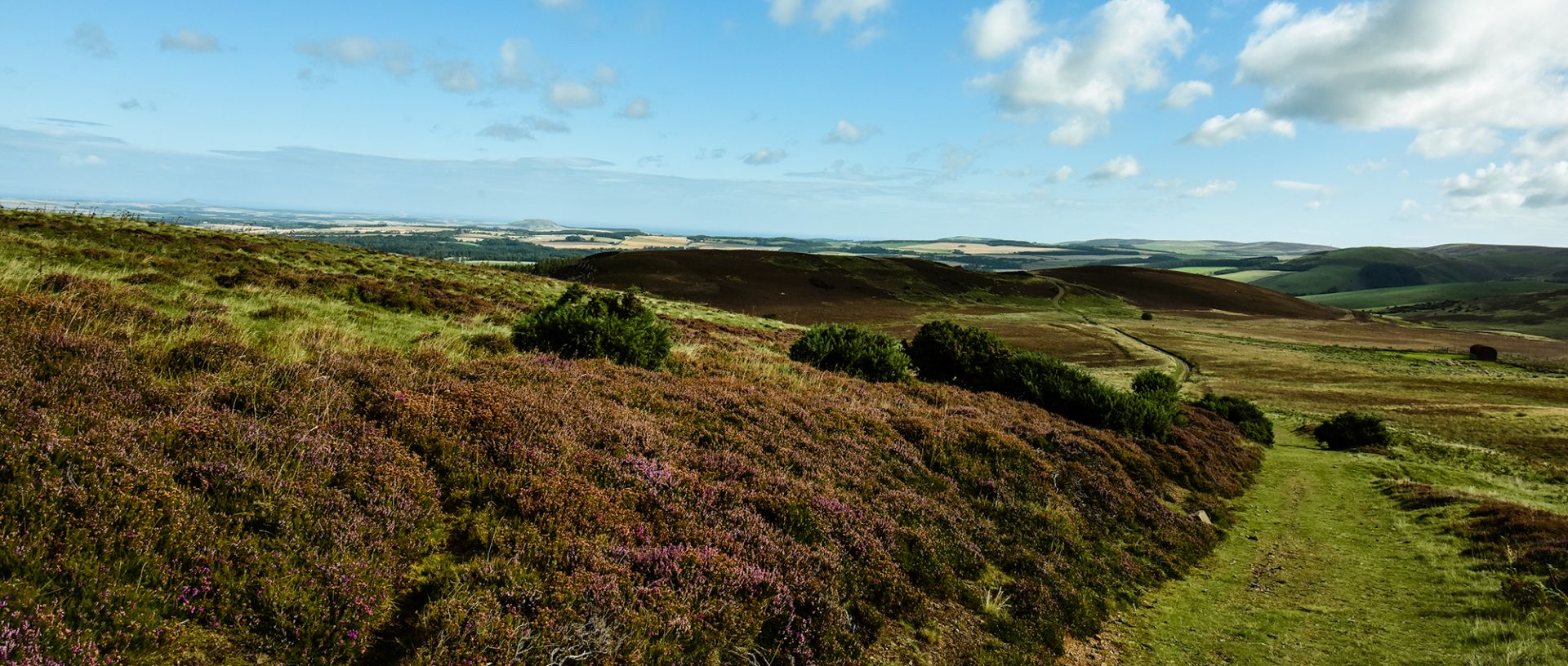9 great walks in the Forest of Bowland
Enjoy shorter valley strolls to challenging hilly hikes

1. River Hodder - Best for… Waterside wander
The River Hodder meanders right across the eastern side of the Forest of Bowland. Near the village of Dunsop Bridge it curves around Hodder Bank Fell, via rolling, sheep-nibbled fields and several intriguing bridges. It’s a charming spot for an easy 2.5-mile waterside stroll. From the village, head east along the Hodder’s north bank. Pass the remains of an old aqueduct and cross a shaky suspension bridge. Return on the south bank, passing the aqueduct again, climbing a hillock and walking over fields, beneath the imposing fells. Cross the river again at an unusual metal span, turning back north for Dunsop Bridge, where a cosy tearoom awaits.

2. Pendle Hill - Best for… Walking and witchcraft
Many stories whirl around Pendle Hill. This 557m-high outlier of the Pennines is reputedly marked with the devil’s footprints. It’s linked to the 17th-century Pendle Witch Trials and said to be haunted by witches still. It’s also central to the beginnings of the Quaker religion. Just as there are many tales, there are many trails up Pendle. But the classic route is a testing 9-mile loop from the village of Pendleton. The ascent is via the main ridge, up the Nick of Pendle. It goes via the Deerstones, where those satanic footprints can be found. The climb continues along Ogden Clough, following the flagstone path to the summit plateau. On a clear day you might spy the Lakeland fells. The return is via the hill’s northern ridge, dropping down Ashendean Clough to feel dwarfed by the hill once more.
3. River Lune - Best for… Inspirational ambling
The Lune Valley has been inspiring artists for centuries. JM Turner painted it, Wordsworth waxed lyrical. It remains a scenic spot for an easy 3.7-mile waterside stroll, perfect for a family day out. From the Bull Beck picnic site, follow the well-surfaced Lune Millennium Park pathway, passing bird-twittered hedgerows through Caton village. This leads to the river, where you could detour to the Crook O’Lune, a scenic, sweeping meander (with toilets too). Otherwise, walk upstream along the lush Lune. With luck, kingfishers might be seen or, in summer, sand martins nesting in the sandy banks. Cross Artle Beck and follow the river curve right back to the start.
4. Stocks Reservoir - Best for… Waterside wandering
This 7-mile circuit of Stocks Reservoir starts from School Lane car park, where the old village church once stood. It was demolished, along with the village it served, to make way for the reservoir in the 1930s. Since then, Stocks has become a haven for wildfowl, including wigeon, teal and whooper swans. Summer sees a raucous colony of black-headed gulls descend on the island in its middle. The trail skirts Gisburn Forest, then strikes north across fields, with views to the fells. An old railway track leads back towards the water’s edge. Here, the path passes wildlife hides and crosses the dam into wildflower meadows, specked with orchids in summer. It continues over the causeway to close the loop.

5. Nicky Nook - Best for… Big views
Who could resist the name? Nicky Nook is a diminutive fell on the far-western edge of the Forest of Bowland. It’s only 214m high but from the top, on a clear day, you can see to Morecambe Bay and the Lake District. Sometimes the view even extends to westernmost North Wales and the Isle of Man. Start your hike from the village of Scorton. A moderate 4.5-mile circuit skirts Ghyll Wood and little Wyresdale Lake, looping behind the fell. The stiff climb up begins just before Holm Wood, but the effort is well rewarded. As well as big vistas, you might spy meadow pipits or hear skylarks trilling above.
6. High Bentham - Best for… Heritage hiking
Get two for the price of one on this fairly gentle 4-mile circular. It affords fine views of the Forest of Bowland and views north to the Yorkshire Dales too. Leave the car at home and arrive via the Bentham Line. The walk begins at the train station in High Bentham, an appealing market town with lots of pubs and cafes. There’s still a weekly Wednesday market too. Follow the main street and then strike east along the tranquil Wenning Valley. Keep going to Greystone Gill bridge, before returning via pleasing fields on the river’s southern bank. Keep an eye out for the interpretation boards en route. These tell stories of the landscapes, wildlife, farming heritage and weaving history you’ll encounter along the way.
7. Bell Sykes Meadows - Best for…Wonderful wildflowers
The meadows of Bell Sykes are spectacular. Designated as Sites of Special Scientific Interest, these six flower-rich fields are home to a diverse, delightful array of species. There’s meadow buttercup and yellow rattle, eyebright and great burnet, hawkbits, meadowsweet and more. Then there are the butterflies, birds and insects attracted by this botanical abundance. The best time to visit is from the end of May to late summer. Make a short, 2.3-mile loop from the Ribble Valley village of Slaidburn. Hike north to cross the Hodder River, then up to Bell Sykes Farm, breathing in the beauty of the blooms. You can make a circuit via the footpath across Lower High Field Farm.
8. Whitendale Hanging Stones - Best for… Standing at the centre
Whitendale Hanging Stones, a crop of small rocks in the Forest of Bowland’s northern fells, has a big claim to fame. It’s said to be the geographical dead-centre of Great Britain. It’s certainly a lonely spot. And not a walk for everyone, requiring navigation across remote, rough, boggy moors. For a tough but satisfying 13.5-mile hike, start from the village of Dunsop Bridge, in the Ribble Valley. A riverside path runs north to Middle Knoll and climbs round into isolated Whitendale. It’s said news of the First World War Armistice took six weeks to reach this isolated spot. A Roman track cuts west, then a fence-lined trail veers south, over White Crag. Expect soggy ground, startled grouse and truly wild terrain en route to the stones themselves. Swing back to Middle Knoll and complete the circuit at the cafe in Dunsop Bridge.
Whitendale Hanging Stones route
9. Parlick Fell - Best for… Short, sharp highs
This hike up and around Parlick Fell might only be 5.5 miles, but it’s a stiff test. From the parking spot at Fell Foot it’s an immediate, steep climb to reach the 432m-high, cairn-topped summit. Paragliders love this spot, and the views are magnificent, looking out to Pendle Hill and the Ribble Valley. The good views continue as you follow the clear ridge over to 510m high Fair Snape Fell. Enjoy it, before descending abruptly via a zig-zagging gully trail to Higher Fair Snape and mercifully flatter farmland. Though beware, there’s one final sharp haul below Parlick to get back to the start.
Explore more
We’ve got ideas for hundreds more wonderful walking routes across England, Scotland and Wales, long and short, easy and challenging. Search for routes on our website. Or join a guided walk with a local Ramblers group. Find your nearest Ramblers group and choose a walk that suits your pace, fitness and interests.
All images © Getty

5 ways to experience Yorkshire’s Three Peaks
Set out to explore this handful of great hikes around the county of Yorkshire’s three highest summits.

10 wonderful day-walks along the Pennine Way
Get a flavour of this wonderful 268-mile-long National Trail on one of these spectacular and varied hikes.

10 best walking holidays
Turn your hobby into a walking holiday: set off on these multi-day hiking trails, for a wonderful week’s walk.

Campaign With Us
We campaign to remove barriers to walking and we step up to protect the places we love to wander.